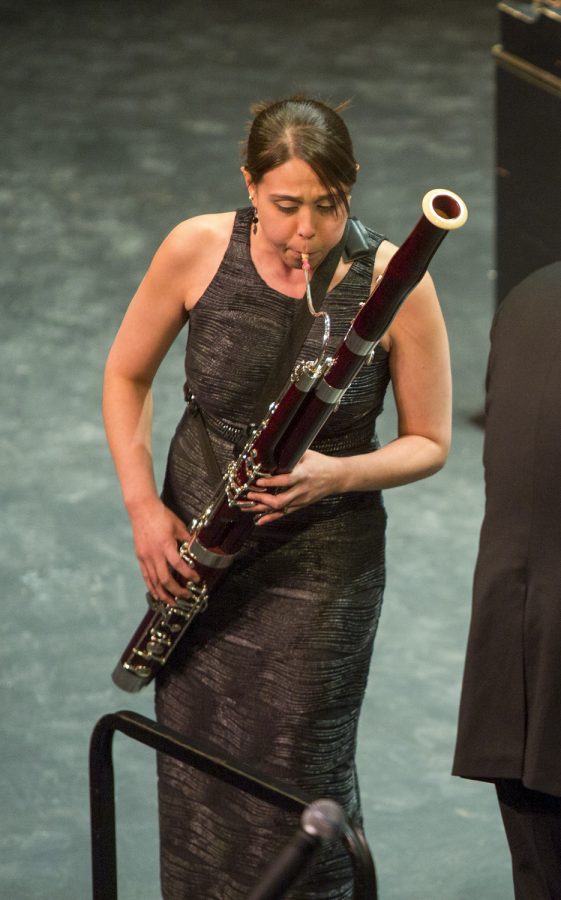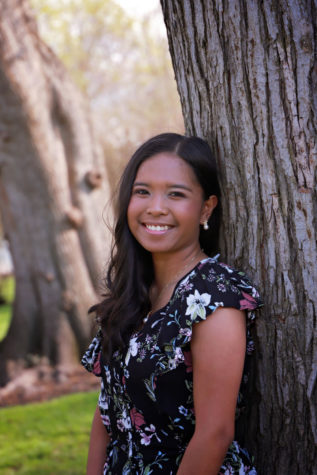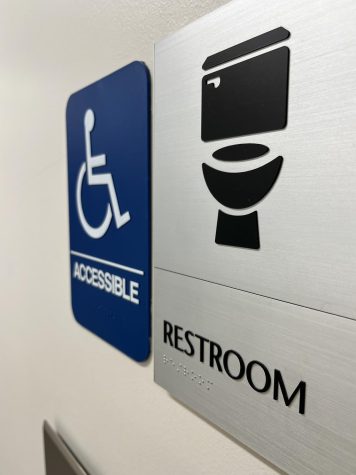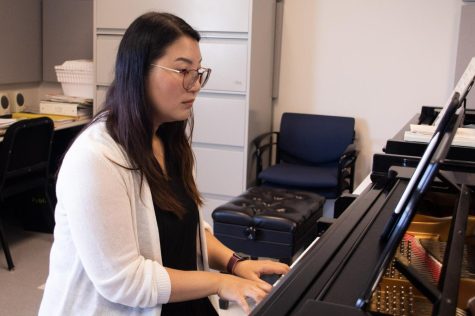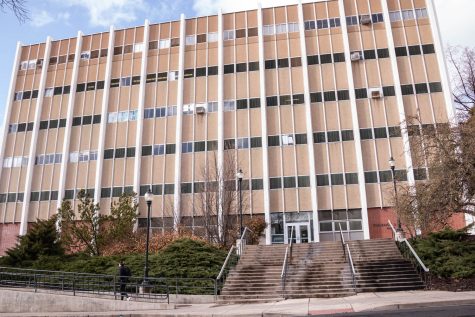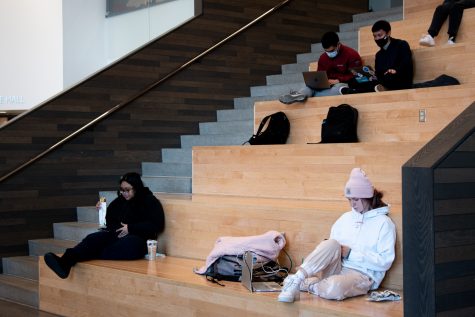WSU professor honors cultural heritage through music, research
Research focuses on Native Americans’ use of classical music as ‘act of resilience’
Jacqueline Wilson plays the bassoon. She started playing bassoon in high school. Now she analyzes contemporary Native American composers’ work in the context of assimilation policies.
October 23, 2020
For a new WSU faculty member, coming home to Washington state means being close to family and culture.
Jacqueline Wilson (Yakama), assistant professor of bassoon and theory, said pursuing her music education and career led her across the country. She dreamed of venturing outside of her Tri-Cities, Washington, community to experience different things, which she was able to do.
“In the process of doing that, I was really given the perspective on the value and beauty of home, of proximity to family, of proximity to culture,” she said.
When Wilson was younger, she did not understand the importance of being close to one’s community. Wilson said her new position at WSU gives her the opportunity to be at home as a whole person, not just as a musician or teacher.
Born and raised in Kennewick, Washington, Wilson began her music journey in public school, playing the oboe.
Her family did not have enough money to pay for her music lessons as she was growing up. Wilson said her high school band director knew of Wilson’s financial situation. He encouraged her to transition to bassoon performance because bassoon players are sought after, hoping it would create scholarship opportunities for her.
Wilson said her time in band gave her a sense of belonging in high school.
“For someone who feels comforted in being surrounded by her friends or learning in a familiar environment, band is kind of this perfect place in an otherwise potentially uncomfortable terrain in high school,” she said.
When Wilson attended Eastern Washington University, she had to adapt to a different type of environment. Wilson approached music as an extracurricular in high school. However, she quickly learned that music means professional training in college.
Wilson said she had to increase her level of investment in music so she could ace her classes and private music lessons.
“I started practicing three, four, five hours a day because typically the fastest way to get me to do something is to tell me I can’t,” she said.
Music taught Wilson the power of hard work. She said some musicians had the opportunity to start playing music at a very young age and had access to different resources like private music teachers. But for other musicians like her, getting a headstart was a challenge.
“You can catch up if you put in the hard work and are diligent and goal-oriented,” Wilson said. “There’s really nothing hard work can’t accomplish, in terms of where you want to go.”
Additionally, music gave Wilson an opportunity to connect with her cultural heritage as a Native American. Her research focuses on contemporary Native American composers. Wilson said she analyzes the composers’ work in the context of assimilation policies that took place from the mid-1800s to the early 1900s.
During that time period, boarding schools across the country wanted to assimilate Native Americans, Wilson said. The music curriculum played a part in that assimilation process.
“Native American ceremonial and social music was out,” she said, “and the music of civilization was in, which was classical music.”
Wilson said classical music was used as a “weapon of assimilation.” Teaching Native Americans how to play in Western ensembles and marching bands was a way to control them because those types of performances require discipline and control of the entire person, she said.
What Wilson’s research found is that many who returned from the boarding schools reclaimed classical music as a tool to assert their identity. Playing classical music transformed into an “act of resilience” to empower Native Americans, she said.
Wilson’s research is ongoing, she said. She still collaborates with Native American composers as a way to honor her cultural heritage.
“As a performer, it’s just my honor to interpret what they do for the stage and for audiences,” she said.
At WSU, Wilson said she has already connected with the Native American Student Center to find ways to get involved in empowering Native American students and staff.
Christopher Dickey, a longtime friend of Wilson and assistant professor of tuba and euphonium, said Wilson is guided by a set of values. Dickey said Wilson’s authenticity and willingness to be transparent impact the people around her.
Wilson’s grounding in her cultural roots is admirable, he said.
“She’s part Yakama, and that’s very important to her,” Dickey said. “She has taken a lot of time to learn about herself and her identity and how that can inform her as a person.”
As Wilson continues her music and teaching career, she said she hopes to use mentorship as a way to build intimate and long-term relationships with students.
“I would like my students to be curious and to understand the value of vulnerability and not be afraid to make mistakes and go for the things they want,” she said.

